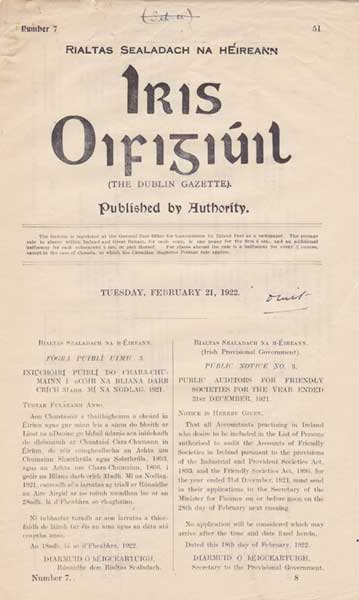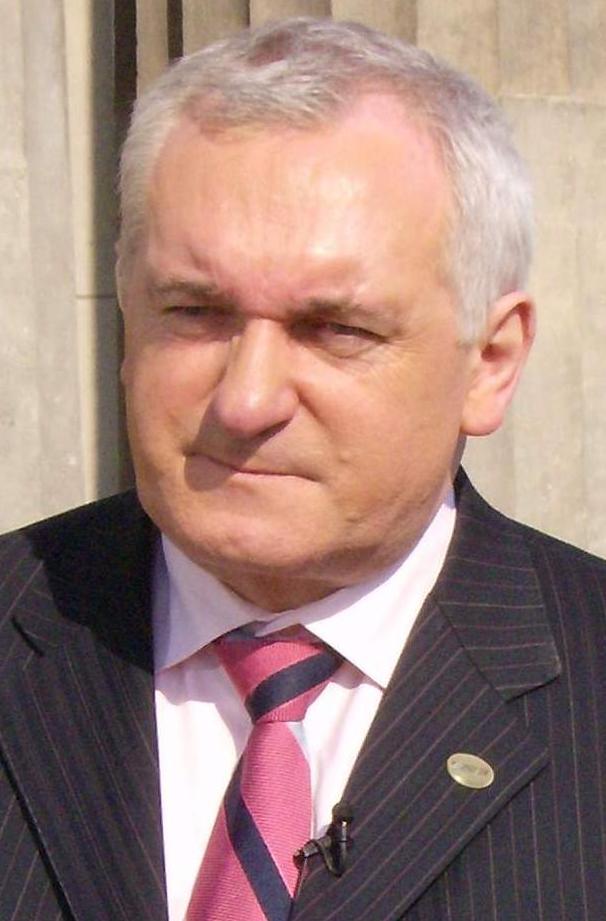|
Rory MacCabe
Rory P. MacCabe is an Irish judge who is a judge of the High Court since January 2022 and is the chairperson of the Garda Síochána Ombudsman Commission. He was a judge of the Circuit Court between 2007 and 2022 and was formerly a barrister and civil servant. Early career MacCabe first worked in the Irish civil service. He holds a diploma in public administration. He was called to the Bar in 1984 and became a senior counsel in 1999. He was involved in criminal trials and also acted in civil matters including employment law, defamation, personal injuries and injunctions. He acted for the builder Tom Brennan at the Mahon Tribunal. David Andrews, as Minister for Foreign Affairs, employed MacCabe from 1998 to advise him on European affairs. He was appointed to the Refugee Appeals Tribunal in August 2001. Judicial career Circuit Court He was appointed to the Circuit Court in May 2007. He was not assigned to a particular circuit. He presided over criminal trials involving ... [...More Info...] [...Related Items...] OR: [Wikipedia] [Google] [Baidu] |
The Honourable
''The Honourable'' (British English) or ''The Honorable'' (American English; see spelling differences) (abbreviation: ''Hon.'', ''Hon'ble'', or variations) is an honorific style that is used as a prefix before the names or titles of certain people, usually with official governmental or diplomatic positions. Use by governments International diplomacy In international diplomatic relations, representatives of foreign states are often styled as ''The Honourable''. Deputy chiefs of mission, , consuls-general and consuls are always given the style. All heads of consular posts, whether they are honorary or career postholders, are accorded the style according to the State Department of the United States. However, the style ''Excellency'' instead of ''The Honourable'' is used for ambassadors and high commissioners. Africa The Congo In the Democratic Republic of the Congo, the prefix 'Honourable' or 'Hon.' is used for members of both chambers of the Parliament of the Democratic Repu ... [...More Info...] [...Related Items...] OR: [Wikipedia] [Google] [Baidu] |
David Andrews (politician)
David Andrews (born 15 March 1935) is a former Irish Fianna Fáil politician who served as Minister for Foreign Affairs from 1992 to 1993 and 1997 to 2000, Minister for Defence from 1993 to 1994 and June 1997 to October 1997, Minister for the Marine from 1993 to 1994, Minister of State at the Department of Foreign Affairs from 1977 to 1979 and Government Chief Whip and Minister of State at the Department of Defence from 1970 to 1973. He served as a Teachta Dála (TD) from 1965 to 2002. Andrews was first elected to Dáil Éireann at the 1965 general election as a Fianna Fáil TD for the Dún Laoghaire and Rathdown constituency. In May 1970, in a reshuffle following the Arms Crisis, he was appointed as Parliamentary Secretary to the Taoiseach, with special responsibility as Chief Whip, and Parliamentary Secretary to the Minister for Defence. He served until Fianna Fáil left office in 1973. Following the 1977 general election, Fianna Fáil were back in office and Jack Ly ... [...More Info...] [...Related Items...] OR: [Wikipedia] [Google] [Baidu] |
21st-century Irish Judges
The 1st century was the century spanning AD 1 ( I) through AD 100 ( C) according to the Julian calendar. It is often written as the or to distinguish it from the 1st century BC (or BCE) which preceded it. The 1st century is considered part of the Classical era, epoch, or historical period. The 1st century also saw the appearance of Christianity. During this period, Europe, North Africa and the Near East fell under increasing domination by the Roman Empire, which continued expanding, most notably conquering Britain under the emperor Claudius ( AD 43). The reforms introduced by Augustus during his long reign stabilized the empire after the turmoil of the previous century's civil wars. Later in the century the Julio-Claudian dynasty, which had been founded by Augustus, came to an end with the suicide of Nero in AD 68. There followed the famous Year of Four Emperors, a brief period of civil war and instability, which was finally brought to an end by Vespasian, ninth Roman em ... [...More Info...] [...Related Items...] OR: [Wikipedia] [Google] [Baidu] |
Alumni Of King's Inns
Alumni (singular: alumnus (masculine) or alumna (feminine)) are former students of a school, college, or university who have either attended or graduated in some fashion from the institution. The feminine plural alumnae is sometimes used for groups of women. The word is Latin and means "one who is being (or has been) nourished". The term is not synonymous with "graduate"; one can be an alumnus without graduating (Burt Reynolds, alumnus but not graduate of Florida State, is an example). The term is sometimes used to refer to a former employee or member of an organization, contributor, or inmate. Etymology The Latin noun ''alumnus'' means "foster son" or "pupil". It is derived from PIE ''*h₂el-'' (grow, nourish), and it is a variant of the Latin verb ''alere'' "to nourish".Merriam-Webster: alumnus .. Separate, but from the s ... [...More Info...] [...Related Items...] OR: [Wikipedia] [Google] [Baidu] |
Year Of Birth Missing (living People)
A year or annus is the orbital period of a planetary body, for example, the Earth, moving in its orbit around the Sun. Due to the Earth's axial tilt, the course of a year sees the passing of the seasons, marked by change in weather, the hours of daylight, and, consequently, vegetation and soil fertility. In temperate and subpolar regions around the planet, four seasons are generally recognized: spring, summer, autumn and winter. In tropical and subtropical regions, several geographical sectors do not present defined seasons; but in the seasonal tropics, the annual wet and dry seasons are recognized and tracked. A calendar year is an approximation of the number of days of the Earth's orbital period, as counted in a given calendar. The Gregorian calendar, or modern calendar, presents its calendar year to be either a common year of 365 days or a leap year of 366 days, as do the Julian calendars. For the Gregorian calendar, the average length of the calendar year (the ... [...More Info...] [...Related Items...] OR: [Wikipedia] [Google] [Baidu] |
Living People
Related categories * :Year of birth missing (living people) / :Year of birth unknown * :Date of birth missing (living people) / :Date of birth unknown * :Place of birth missing (living people) / :Place of birth unknown * :Year of death missing / :Year of death unknown * :Date of death missing / :Date of death unknown * :Place of death missing / :Place of death unknown * :Missing middle or first names See also * :Dead people * :Template:L, which generates this category or death years, and birth year and sort keys. : {{DEFAULTSORT:Living people 21st-century people People by status ... [...More Info...] [...Related Items...] OR: [Wikipedia] [Google] [Baidu] |
Iris Oifigiúil
''Iris Oifigiúil'' (; "''Official Journal''") is the official gazette of the Government of Ireland. It replaced ''The Dublin Gazette'', the gazette of the Dublin Castle administration, on 31 January 1922. ''The Belfast Gazette'' was established for the same purpose in the newly created Northern Ireland on 7 June 1921. ''Iris Oifigiúil'' is sometimes referred to as the ''Irish State Gazette'' in English and has been issued twice weekly on Tuesdays and Fridays since 1922. Prima facie evidence on notices of government business are published in the newspaper; these include orders, rules, and proclamations. The paper is published as a hard copy by the Office of Public Works. Since 2002, most contents are also published in the online edition. An exception is notices of naturalization: these are required under the Irish Nationality and Citizenship Act 1956 but online publication was stopped in 2016 on data privacy grounds. At the same time, the search functionality was removed fro ... [...More Info...] [...Related Items...] OR: [Wikipedia] [Google] [Baidu] |
Minister For Foreign Affairs (Ireland)
The Minister for Foreign Affairs ( ga, An tAire Gnóthaí Eachtracha) is a senior minister in the Government of Ireland and leads the Department of Foreign Affairs. The Minister's office is located at Iveagh House, on St Stephen's Green in Dublin; "Iveagh House" is often used as a metonym for the department as a whole. From 1922 until 1971 the title of the office was ''"Minister for External Affairs"''. The current office holder is Micheál Martin, TD. He is also Minister for Defence. He is assisted by: * Thomas Byrne, TD, Minister of State for European Affairs; and *Colm Brophy, TD, Minister of State for Overseas Development Aid and Diaspora. Overview The department has the following divisions: * Finance Unit – oversees the financial control of the department. * Anglo-Irish Division – deals with Anglo-Irish relations and Northern Ireland. * Cultural Division – administers the state's Cultural Relations Programme. * European Union Division – coordinates the stat ... [...More Info...] [...Related Items...] OR: [Wikipedia] [Google] [Baidu] |
Mahon Tribunal
The Tribunal of Inquiry into Certain Planning Matters and Payments commonly known as the Mahon Tribunal after the name of its last chairman, was a public inquiry in Ireland established by Dáil Éireann in 1997 to investigate allegations of corrupt payments to politicians regarding political decisions. It mostly investigated planning permissions and land rezoning issues in the 1990s in the Dublin County Council area. Judge Alan Mahon was the final chair of the tribunal and its other members were Judge Mary Faherty and Judge Gerald Keys. The original Chairman, who was the sole member until just before his retirement, was Judge Feargus Flood, giving rise to the original common name of the Flood Tribunal. Using investigations to collect evidence and public hearings with witnesses, it investigated allegations made in the media prior to its establishment and allegations subsequently made to the tribunal itself. The tribunal ran from November 1997 to March 2012 and was the longest r ... [...More Info...] [...Related Items...] OR: [Wikipedia] [Google] [Baidu] |
High Court (Ireland)
The High Court ( ga, An Ard-Chúirt) of Ireland is a court which deals at first instance with the most serious and important civil and criminal cases. When sitting as a criminal court it is called the Central Criminal Court and sits with judge and jury. It also acts as a court of appeal for civil cases in the Circuit Court. It also has the power to determine whether or not a law is constitutional, and of judicial review over acts of the government and other public bodies. Structure The High Court is established by Article 34 of the Constitution of Ireland, which grants the court "full original jurisdiction in and power to determine all matters and questions whether of law or fact, civil or criminal", as well as the ability to determine "the validity of any law having regard to the provisions of this Constitution". Judges are appointed by the President. However, as with almost all the President's constitutional powers, these appointments are made on "the advice of the Governm ... [...More Info...] [...Related Items...] OR: [Wikipedia] [Google] [Baidu] |





